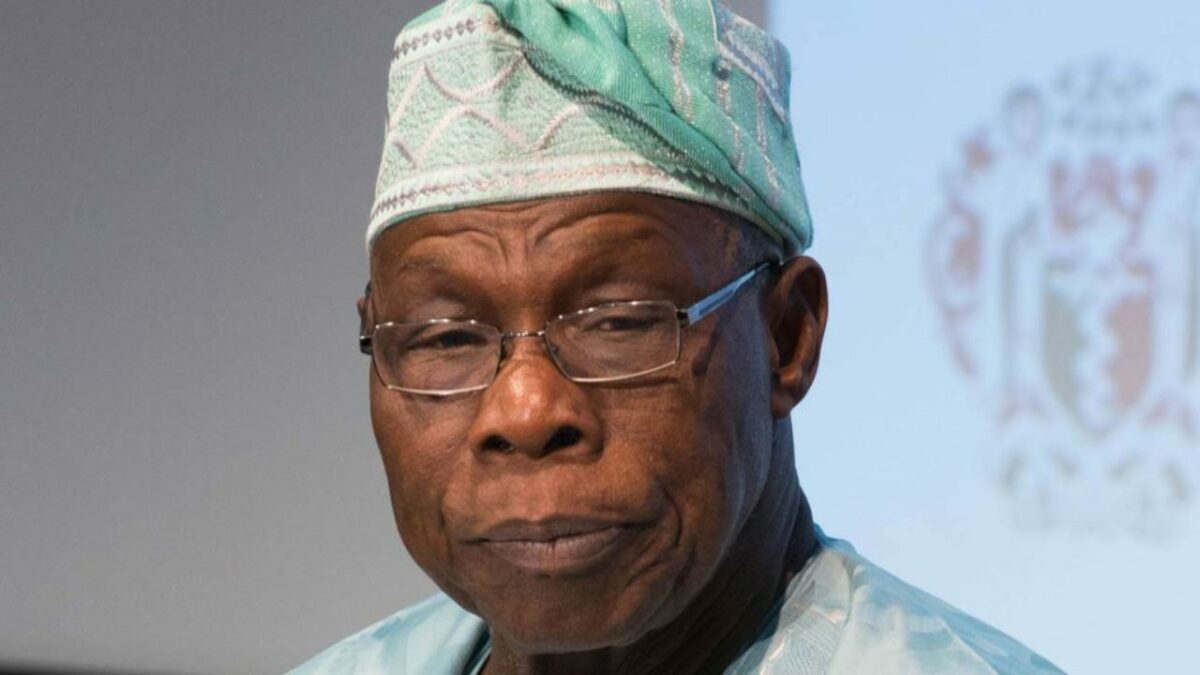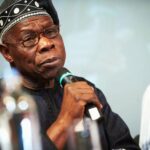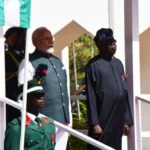In a gathering last week in Abuja, a former president, Olusegun Obasanjo, as he is wont to do, stoked the flames of controversy when he, as newspapers love to report, ‘blasted Buhari,’ over his governance, or lack thereof, of Nigeria.
Obasanjo’s proclamation, in which he accused Buhari of deepening old fault lines and driving the country to the precipice of a failed state, is no longer news.
Obasanjo and failed state narratives
Why we met with Obasanjo, Afenifere, Ohanaeze, others – Northern elders
Reactions to Obasanjo have been predictable. Socio-cultural groups like the Ohaneze Ndigbo and Afenifere, expectedly, sided with Obasanjo.
The Arewa Consultative Forum took the side of the president and added their own staid firepower to Presidential Spokesman, Garba Shehu’s rebuttal of Obasanjo.
To be fair, the Northern Elders’ Forum (NEF), which, incidentally, the presidency had earlier this year described as lacking “credible membership,” stood by Obasanjo.
In the aftermath of the missives, the pattern that emerged, clear as after tides have receded from rocky shores, are the same that have shaped the political orientation of this country; ethnic, regional and petty.
The largely southern interests groups sided with the former president and the northern one aligned behind the president.
This pattern, always bubbling beneath the surface, sometimes not so subtly, comes to the fore ahead of every election.
Religious leaders also play their parts in promoting these sentiments.
The one time these sentiments were shelved and would have been eradicated was the run up to the June 12, 1993 elections.
As it is well known, that experiment suffered an unfortunate abortion and here we are.
Since 2003, elections in Nigeria have increasingly taken regional slants following the rise of the shariah debate and the conflicts that followed.
Buhari’s popularity in the north was based off of that one interview he granted the BBC in which he professed support for the rights of citizens to be governed by shariah, should they so choose.
Religious leaders have since then taken more militant approaches to their roles as self-styled campaign directors for certain politicians.
Before the 2011 elections, for instance, crusade posters, in which a pastor in military fatigues is seen ushering a photoshopped President Jonathan onto a throne, with the heading: “The throne is yours,” surfaced.
Preaching in both churches and mosques became more toxic to national unity to the extent that if the hate spewed from pulpits were insecticides, they would have permanently cured Nigeria from its mosquito scourge.
The most glaring instance of this misleading diatribe that comes to my mind was in 2019 when a popular Jos-based preacher advised his followers not to vote for a candidate based on his ethnicity.
It made me share a story on my Facebook account then, which seems just as relevant to the present situation:
Of an Igbo man, a mosque and a sheikh
Today, in light of the “mugun Inyamiri” diatribe, I am going to tell you a story of one “Inyamiri whose name is John.
His brother owned Oxford Bakery in our street at ‘Yan Trailer in Jos, so everyone called him John Oxford.
The bread they made wasn’t particularly great but John Oxford was a hell of a great guy.
He cracked jokes that made your belly ache.
He was always laughing.
And always being laughed at.
Often, he would stand in the middle of the street, naked potbelly hanging over his belt, laughing and talking.
Since he was vertically challenged, that belly was the first thing you noticed about him.
Funny as he looked, John was often seen in the company of young beautiful women.
It turns out he ran a corps of exam mercenaries.
If you want to pass your JAMB or WAEC, pay John, go home and he will know what to do.
His scheme was so elaborate that I don’t know how he managed to stay out of trouble for it. That is just by the way.
On September 7, 2001, when the devil wailed and everyone, or nearly everyone in Jos, went mad, violence started and neighbours turned on neighbours because they called God by different names.
The neighbourhood was tense, but there was more shock than red mist.
No one believed civil violence was possible in Jos, where you walked the streets and strangers from other faiths offered you their mats, their food and a bowl of water to drink.
Anyway, the first sign of trouble on that street arrived in the form of some Christian boys from somewhere else who invaded the area and made straight for the mosque that was directly opposite Oxford Bakery.
They had a gallon of fuel, and machetes and clubs.
There was really nothing standing between them and burning down that mosque.
But there was John.
He ran out shirtless, as he often was, big belly flopping jelly-like, belt dangling, and grabbed hold of the boy with the gallon.
He pleaded for the boys to not burn down the mosque.
The marauders insisted. John wouldn’t let go.
They dragged and tussled, but John held on.
This went on for quite a while that the marauders were vexed and raised their machete to strike John.
Still that Igbo man wouldn’t let go.
The Igbo people in John’s compound came out.
Some asked the marauders to leave, others asked John to think of his safety and let the boys do what they came to do.
However, his resolve was greater than that of the marauders and in the end, they gave up and retreated. John, with his glorious potbelly, stood in the light of the setting sun in the shadow of the mosque he had saved, panting.
And then he started laughing.
Why am I telling this story today, nearly 18 years after?
Well, because I saw the video of a Jos-based sheikh speaking of “wicked Igbos” and advising his followers not to vote for any candidate with an Igbo running mate because their tribe killed Sardauna and Tafawa Balewa.
I just want to tell this story so we remember that an Igbo man named John put his life on the line to save a mosque that belonged to this sheikh’s faction, a mosque that sheikh had officially declared opened and preached in.
I don’t think the sheikh knows this story of how John saved his mosque that day but I think he should have known that you don’t lump people and judge them over something some individuals did.
I have many stories to tell of the many wonderful Igbo people in my life, but I will just leave this here, just so people know that an “Inyamiri” saved the sheikh’s mosque one evening in 2001.
*********
Today, in the light of the persistent ethnic and regional posturing in wake of Obasanjo’s criticism of Buhari, an observation seems to escape many of us.
That in all the years of bandying ethnic sentiments and hate, Nigerians in the north and south are still dying from diseases that have stopped killing people elsewhere and poverty levels in both north and south are still unbelievably high.
The messiahs from your region have not, in fact, done much to improve your situation, so really who has been profiting from this?

 Join Daily Trust WhatsApp Community For Quick Access To News and Happenings Around You.
Join Daily Trust WhatsApp Community For Quick Access To News and Happenings Around You.

